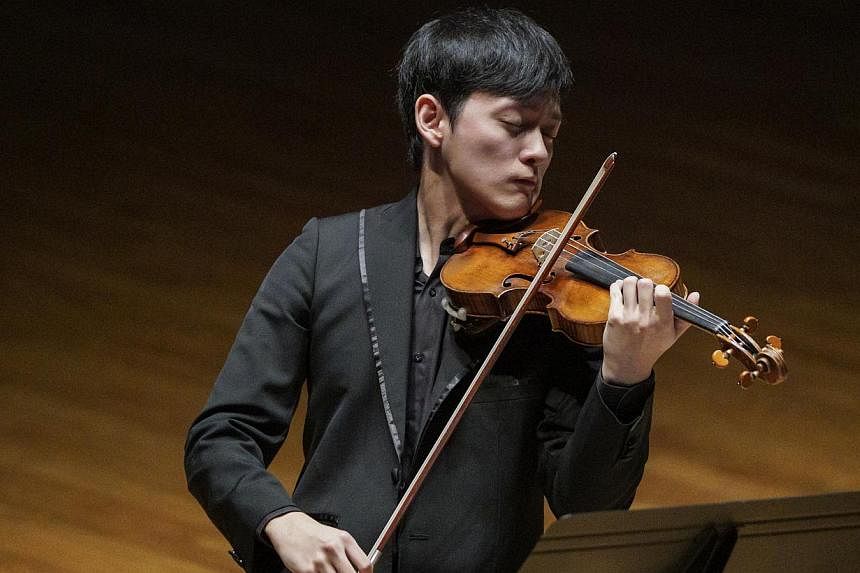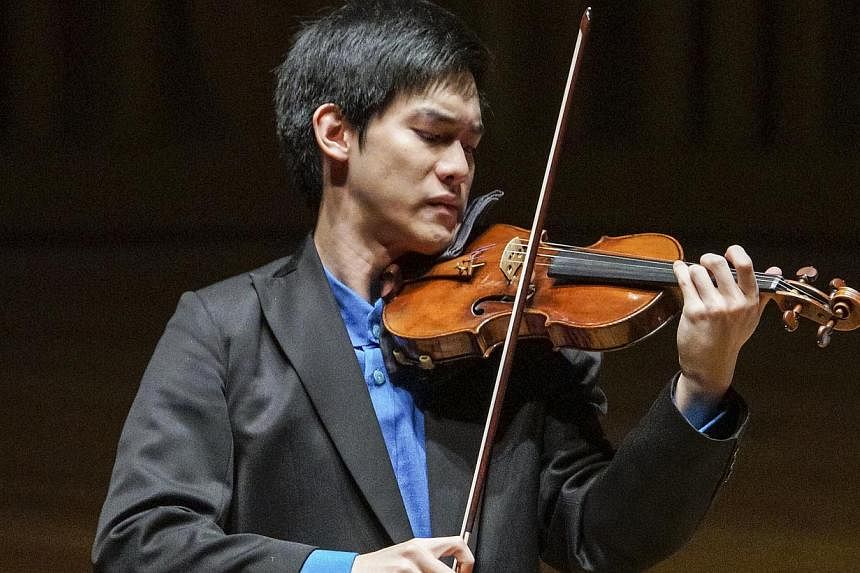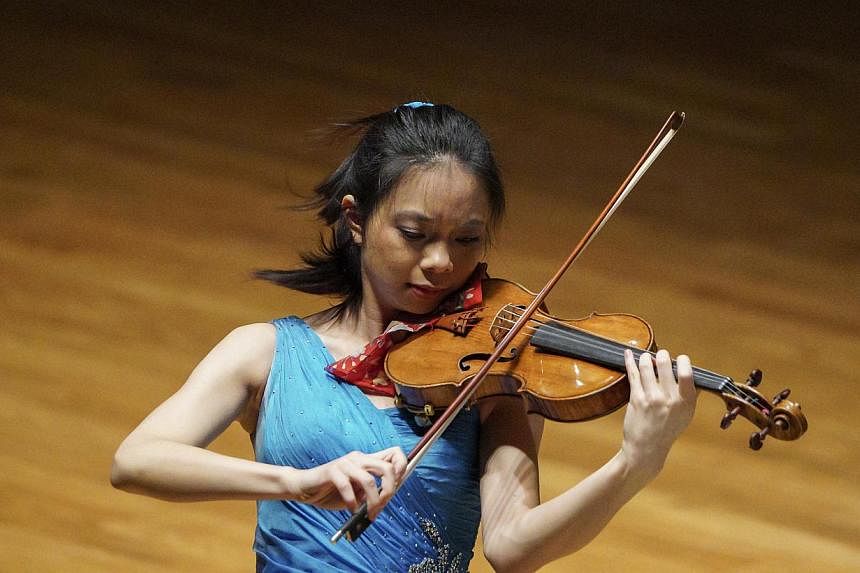Over the past 10 days, the inaugural Singapore International Violin Competition, organised by the Yong Siew Toh Conservatory of Music, has been a showcase of the best young violinists of the world. By the final round, held over two evenings at the Victoria Concert Hall on Sunday and Monday, the 35 selected competitors had been narrowed down to just six.
Accompanied by the Yong Siew Toh Conservatory Orchestra conducted by Jason Lai, each finalist performed a violin concerto by Mozart. While the digital prowess of the players in the earlier rounds had been of a spectacularly high standard, the final was to be a stern test of musicality, the ability to listen and make intimate chamber music with a small ensemble.
Mozart's violin concertos were early works, composed in his late teens, near the end of his years as performing child prodigy. Their quaint proportions, sleek and elegant lines which shun ostentatious display, are the antithesis of the arch-virtuoso, yet it takes nothing less than a virtuoso to do them justice. Interestingly, four of the six finalists were Asians, three of Taiwanese lineage.
There were three performances of Mozart's Fifth Violin Concerto In A Major (K.219), two of the Fourth Concerto In D Major (K.218) and one of the Third Concerto In G Major (K.216).
The first evening opened with Fedor Rudin (France) whose cool but stylish approach to K.219 was that of a keen chamber musician. His was a sweet, sensitive and self-contained sound which never sought to impose itself, but had an interesting run of cadenzas, which included a short quote from Mozart's piano Rondo Alla Turca in the Turkish-flavoured interlude of the finale.
By contrast, the two ladies that followed exuded an outsized tone that easily filled the nearly-packed concert hall. Whether that is appropriate for chamber music is one for musicologists and historians to decide, but it certainly captured the audience's attention. Sirena Huang (USA) was grace and poise personified in K.216, the dreamy central Adagio being an epitome of classical era beauty. When she pressed forward in the outer movements, there was never an unforced or unnatural sound.
Members of the audience had been heard discussing what constitutes a "competition performance", which can be equated to playing to the stands, in an unabashed showy display. After Huang, Alexandra Conunova (Moldova) provided more of those qualities in K.218, yet her reading never felt less than well-proportioned, an immaculate view with the fervour to match. Again, artistry had been allied with an equal proportion of sinew and guts.
On the second evening, the artists continued to shine and make music. Yu-Chien Tseng (Taiwan) in K.219 provided refined and cultured playing, armed with an extrovert edge. His biggish cadenzas and vigorous rendition of the Turkish episode made for exciting listening. Equipped with a similar statuesque deportment and demeanour was Richard Lin (Taiwan) in K.218, whose animated and heroic stance sometimes seemed at odds with the intimate music. His cadenzas were large-scaled and Romantically inclined, elements that would not look out of place in the Brahms concerto.
Finally, Hyun Jae Lim (South Korea) delivered the most muscular and brawny of the three K.219 performances. She projected a bright and luminous tone that was unafraid to exert itself beyond the orchestra's decibel limit. It seemed that this concerto had over two evenings metamorphosed from a soft-focused and stately diversion to a virtuoso showpiece infused with steroids and fuelled by the mere idea of competition.
This reviewer could have happily lived with all three women making the Grand Finals, but the jury of nine international artists chaired by Qian Zhou, Head of Strings at the Conservatory, elected Huang, Tseng and Lin to proceed to the Grand Finals at the Esplanade Concert Hall on Wednesday evening. A Taiwanese sweep of the top three prizes may come as a surprise to some, but the fact that none of the grand finalists were students of the judges is perhaps the most remarkable aspect of this competition.
The concertos, accompanied by the Singapore Symphony Orchestra conducted by Vladimir Verbitsky, will include those by Tchaikovsky (to be performed by Huang), Sibelius (Tseng) and Brahms (Lin). With a US$50,000 prize in the pipeline for the winner, an extravaganza of musical passion and violin fireworks awaits the audience in the grand finals.



